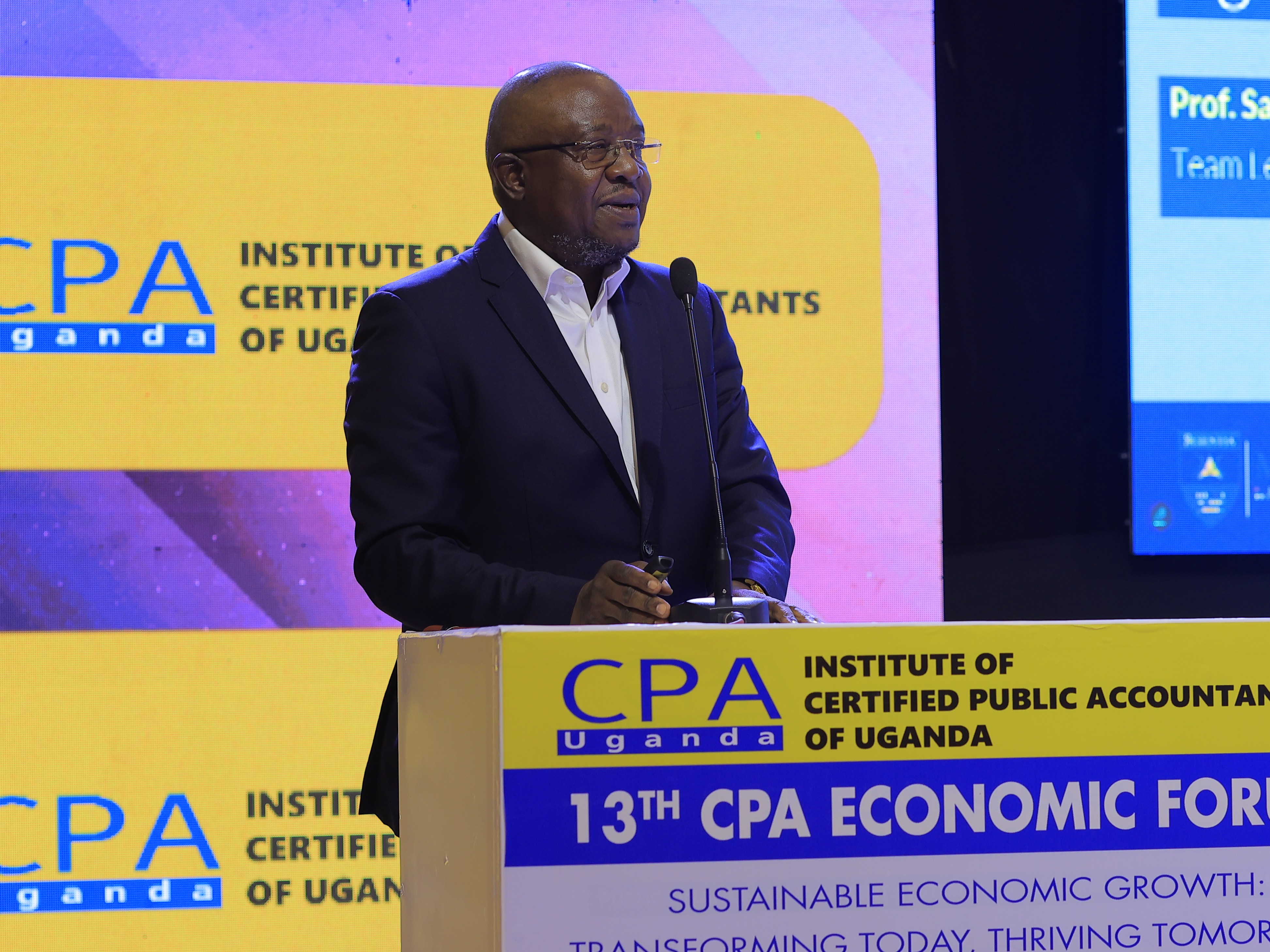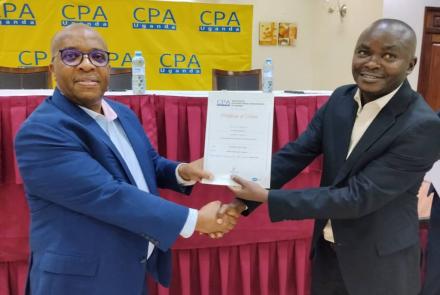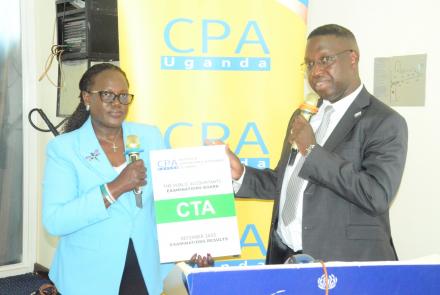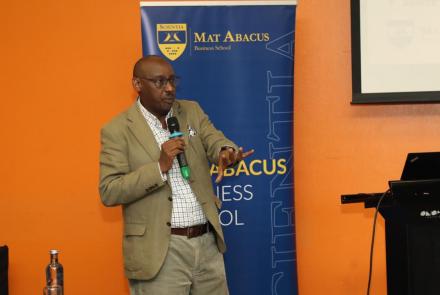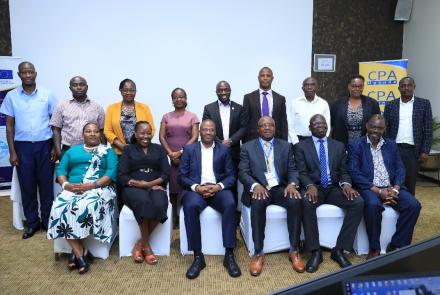By Joan Abaasa
Communications Officer
Drawing on global trends and Uganda’s socio-economic realities, Professor Samuel Sejjaaka, Country Team Leader at MAT ABACUS Business School, called for deliberate, organised and forward-looking economic strategies to help Uganda navigate an increasingly turbulent global environment.
Speaking at the 13th CPA Economic Forum, Sejjaaka delivered a presentation titled "Geopolitics and Trends in the Global Economy – Uganda’s Threats and Opportunities."
He began by outlining the tectonic shifts taking place in geopolitics, economics, society and the environment, noting that the post-World War II era of multilateralism is gradually giving way to rising unilateralism, as global powers retreat from international cooperation.
This shift, he argued, combined with ongoing conflicts, trade barriers and climate change, is creating uncertainty and instability around the world. Sejjaaka noted that these changes are already affecting countries like Uganda, which depend on foreign markets and investment.
Sejjaaka explained that Uganda’s economy has shown resilience, recording an average Gross Domestic Product (GDP) growth rate of six percent per year over the past two decades. However, he pointed out that this growth is fragile, as public debt stands at nearly 26 billion US dollars, and excessive government spending, mostly on salaries, has crowded out private sector credit.
Although inflation and currency stability have been maintained, Uganda remains vulnerable to global economic shocks due to its dependence on commodity [NA1] imports and external financing.
Despite these challenges, Sejjaaka emphasised that Uganda has many opportunities. These include a young and dynamic population, abundant natural resources, a growing digital and renewable energy sector and expanding regional trade through the African Continental Free Trade Area. He identified tourism, financial technology, green energy and vocational training as key areas for economic growth.
He warned that these opportunities will only be realised if Uganda becomes more organised and improves its ability to execute plans effectively. According to Sejjaaka, the problem is not a lack of resources but a lack of order. Through humorous yet insightful examples, such as Ugandans building large unused homes and the widespread use of Luganda among labourers in Dubai, he illustrated the country’s misplaced priorities and underused potential.
He further highlighted the continued brain drain and mismatch in skills. While Ugandans are working in low-wage jobs abroad, the local economy is short of skilled workers. He urged a shift from exporting labour to exporting talent and value.
Sejjaaka expressed concern about how oil revenues are being managed. He warned that if there is no transparency and strategic oversight, oil could become more of a burden than a benefit. He pointed to emerging disputes over which costs in the petroleum sector are allowable or not, and how that could negatively affect Uganda’s share of oil profits.
On regional integration, he criticised inefficiencies in the aviation and transport sectors across Africa. He questioned why a traveller must go through distant hubs like Dubai to reach countries within the continent. He called for better intra-African connectivity to support trade and lower transport costs.
Sejjaaka noted Uganda’s antifragility, the ability of the country to survive despite disorder. However, he stressed that survival is not enough. He said Uganda must develop and implement innovative and long-term strategies that promote industrial growth, build resilience and harness technology to withstand future global challenges.
The 13th edition of the CPA Economic Forum was held from 9 – 11 July 2025, at the Imperial Resort Beach Hotel, and online. The theme was Sustainable Economic Growth: Transforming Today, Thriving Tomorrow. Resolutions from the Forum will be submitted to the Ministry of Finance, as accountants’ input into national economic policy development.
The forum was organised in partnership with Bank of Uganda, Uganda National Oil Company (UNOC), National Agricultural Research Organisation (NARO), Uganda Printing and Publishing Corporation (UPPC), Electoral Commission, Centenary Bank, Uganda Electricity Generation Company Limited (UEGCL), National Social Security Fund (NSSF), Stanbic Bank, PKF Uganda, Prudential Assurance Uganda Limited and MTN Uganda.
END
[NA1]Did you mean imports? Please review

